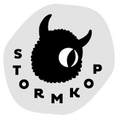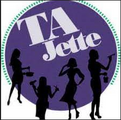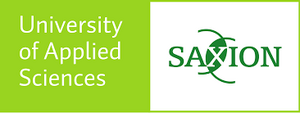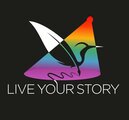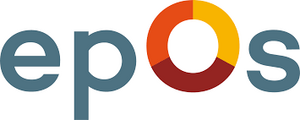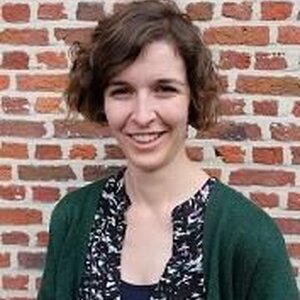Diversi-Date (ENG)
The aim of Diversi-Date is to create a safe context in which young people can develop a positive self image. We want to empower them and make them resilient. We bring together a diverse group of people (pupils, students and teachers) in a safe and respectful social context, to facilitate an experienced based exchange on world views and identity to increase civic competences and resilience and to foster social inclusion by means of creative and artistic methods. The young people involved are given an accessible and safe forum to enter into a dialogue. It is a way to broaden their (and our) horizons, to hear the story of others, to learn to nuance, to reason critically and to formulate their opinion with respect for others.
Diversi-Date can also lower the threshold to higher education. It offers a playful and direct introduction to the ins and outs of a university college campus. The Family Studies programme of Odisee fits in well with the participating study options (e.g. from TSO Social-Technical and Health and Welfare Sciences, from ASO Human Sciences...)
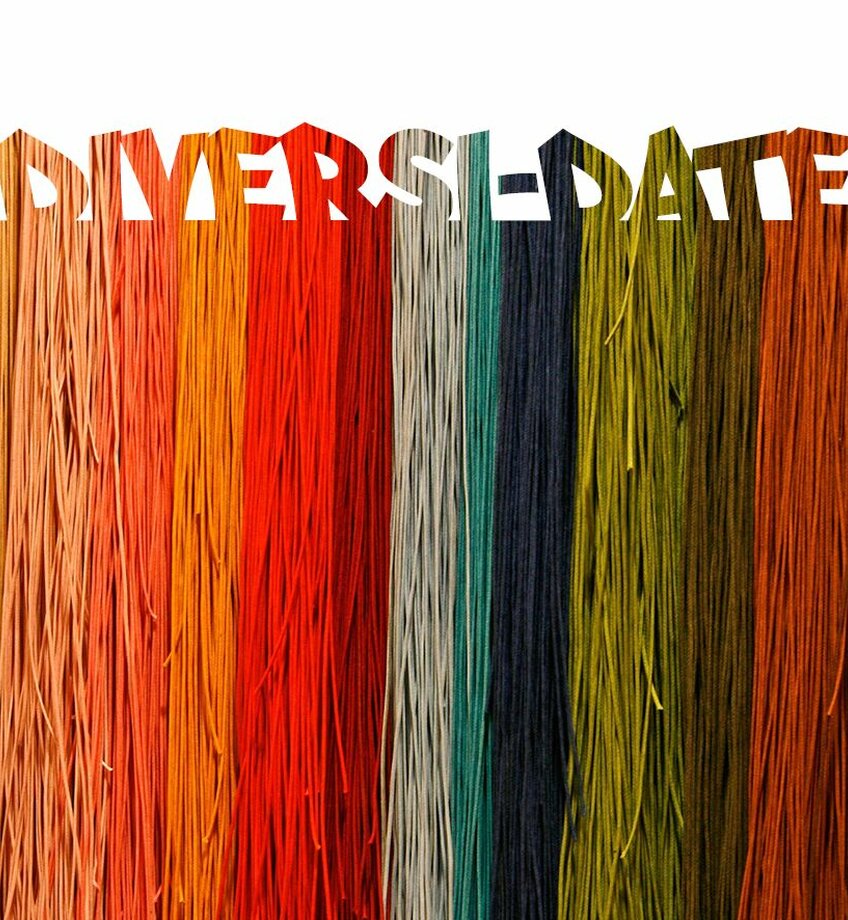
Background of the project
Context
We are living in a rapidly changing society with numerous social challenges, such as polarization, climate change and recently the covid crisis. People in the field of education, youth work and the creative sector are struggling to cope with these challenges in a sustainable way. They acknowledged the need of young people to be reinforced regarding their resilience, civic competences, creative coping and awareness of European values in this challenging social context. All players really want to cooperate to handle these challenges together.
Typical for a super diverse society is that one’s world view is no longer determined by one pillar (such as religion, culture or socio-economic status). It is a complex junction of values, experiences, preferences, motivations with respect to religion, society, sexuality, environment, future, identity...
Civic competence is the ability of young people to be able to participate in a society, voice their concerns and ensure their rights and the rights of others. In a democratic system, characterized by superdiversity, it is fundamental that people must learn to cope with disagreement and conflict with respect for the values, identities, preferences, habits and background of others without excluding them.
In a societal context, people must learn to explore, develop and accept their own identity. The way people interpret and value themselves, others and their surroundings, is what we call ‘world view’. A continuing process of socializing, in which people give meaning to and construct social reality through interaction.
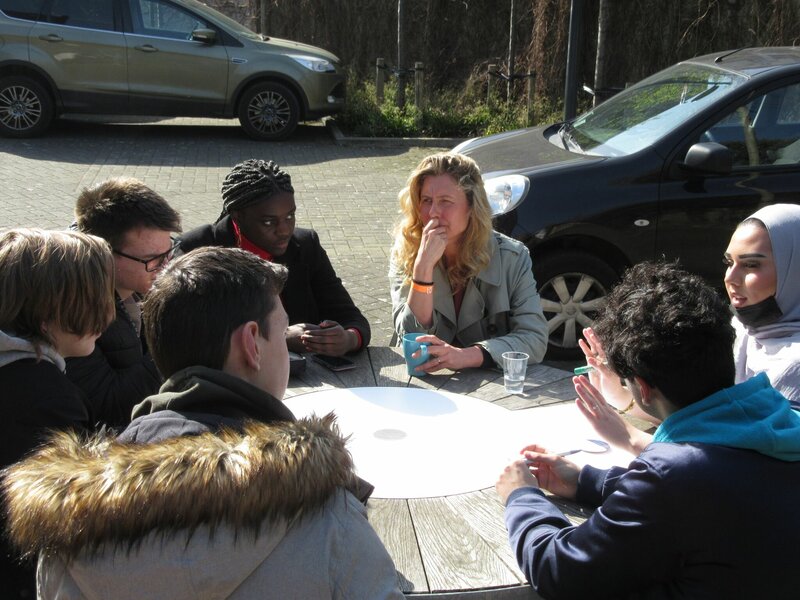
Method
Every year, a hundred youngsters from Brussels and Flemish secondary education (fifth and sixth grade) are invited to our dialogue day: Diversi-Date. We bring them together to connect with each other in a safe and creative way. Topics we will focus on are identity, relationships, lifestyle and their vision of the world.
It is a day for and by young people. The pupils are supervised by students of Family Studies. Adults and experts are available and are having a facilitating role. The intention is that the young people themselves determine the content of the day.
With Diversi-Date we do not opt for classic conversation methods, but we facilitate dialogue through various creative methods, such as digital storytelling, play and improvisation. These methodologies are seen as a tool for less language-skilled young people to express themselves and participate in an active way.
The project aims to stimulate dialogue between young people. In the first place on the dialogue day itself, but also afterwards. That is why the teachers of the pupils will participate in a workshop on diversity in the classroom and have time to exchange with each other.

Creative methods
We aim to develop creative methods to foster dialogue among pupils (of secondary schools) and students (of universities (of applied sciences)), regardless of their socioeconomic, religious or cultural backgrounds. Through these methods we want to reinforce the competences of young people, strengthen their resilience and empower them in coping with a rapidly changing and diversifying societal context by making use of the talents and creative potential of these young people.
Creative methods such as storytelling, role-playing, and visual arts can help to create a safe space for open and honest communication. Additionally, they can provide a means for expressing thoughts and feelings that may be difficult to put into words and using creative methods can help to break down barriers and build empathy among participants.
Examples of creative methods
- Visual arts, such as drawing, painting and collages. These arts can help to create an open and non-threatening environment where young people can express themselves and share their perspectives in a visual way.
- Using theater and improvisation can help to create a safe and non-threatening environment where young people can express themselves and share their perspectives through role-playing and storytelling.
- Storytelling: Encouraging young people to share their personal stories can help to create a safe and non-threatening environment where young people can express themselves and share their perspectives in a more personal and meaningful way.
- Using music and songwriting can help young people to express themselves and to connect with others in a more emotional and meaningful way.
- Creative writing, such as poetry, short stories, or personal narratives can help people to express themselves and to share their perspectives in a creative and meaningful way.
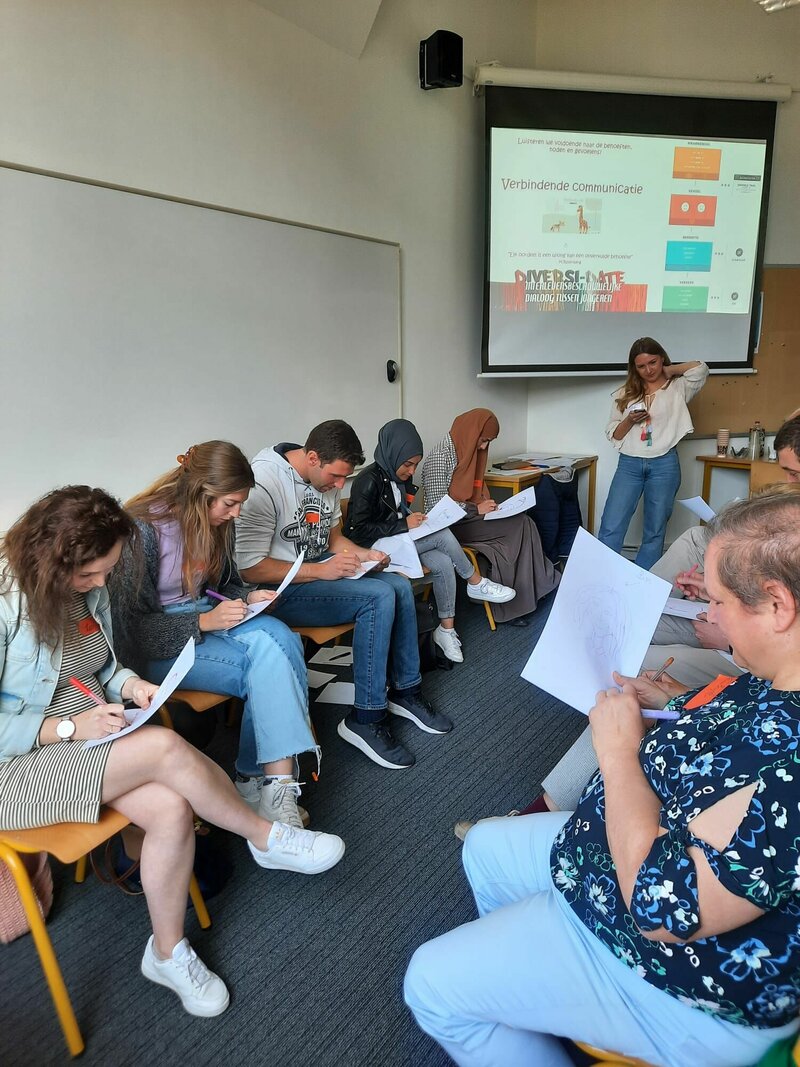
Creative output - toolboxes
A guide for teachers and youth workers
In the first part of this toolbox, we discuss the general framework, the guidelines and criteria of Diversi-Date. The ‘what, why, how and who’ of the project is followed by the discussion of why inclusive and divers sensitive dialogue is an important aspect of civic competences in today’s society. Thirdly, we argue why the partnership beliefs in the bigger value of creative methods in facilitating divers sensitive exchange. Afterwards, we discuss the concept of safer spaces and the pros and cons of clear goals and a thematic discussion. Other topics which were frequently subject of debate during the project are the way how to react toward non-democratic beliefs and the need of awareness of one’s own background. These topics are part of the 5th and 6th chapter. To end with, we explain how Diversi-Date can be part of the course curriculum of secondary schools and institutions of higher education, and present an evaluation of the Diversi-Date event.
In Part II, we introduce and explain 25 practical methods out of which one can choose to organize a Divers-Date program for youngsters. Additionally, we propose a workshop program for teachers or youth workers.
A guide for creative organizations
This toolbox is targeted to creative professionals working with teachers/schools, and includes three all-day workshops created by the creative partners from the Netherlands, Belgium, and Finland. These workshops are created to be used in many kinds of situations; when there is a need to deal with better interaction and different kind of themes connected to diversity.
The creative sector finds itself in very challenging times. Many of them seek ways to reinvent themselves, to innovate, to cooperate, to exchange, to digitalize, to find new opportunities. Means to do so in a sustainable manner are limited. With this toolkit we want to help creative organizations to do so. The goals are to support creative organizations in coping with changing society and societal challenges, but also to help them to help others in using creative methods to cope with the changing world.
Previous output
One of the challenges in an increasingly diverse society is to encourage an open and respectful attitude towards different philosophies of life. Diversi-Date wants to help young people to explore their own philosophy of life and the one of others, always with respect for being different. For this type of dialogue, we use talent-oriented methodologies that are of all times and all communities, but which are interpreted differently within each community, such as play, eating and cooking together, telling stories...
We have therefore developed a guide that explains the vision of Diversi-Date. We offer playful methodologies and exercises, but also practical guidelines for teachers to discuss diversity and philosophy of life at school and class level. Everything is supported by theoretical frameworks about diversity, identity and philosophy of life and fits within the educational attainment targets.
Impressions on Diversi-Date
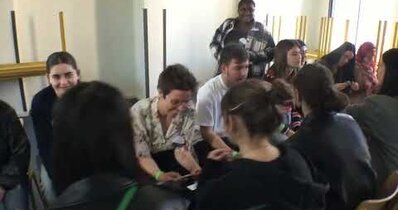


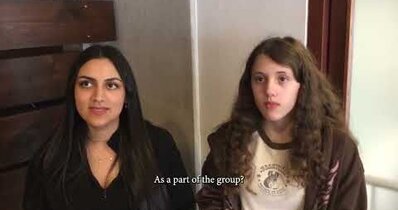
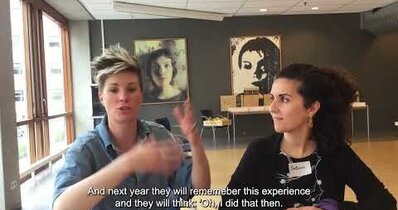
Written impressions
An article on dialogue between young people in Brussels and Flanders, in which Alexandre Reynders contributed, was published in the Belgian magazine Tertio: ‘Brusselse en Vlaamse jongeren in dialoog over diversiteit’.
Our reporters have made some lovely short videos of the Diversi-Date dialogue day of 2022 (in Dutch):
- A recap of the day;
- A vlog of the day, in which the students show their experiences.
Impressions of the European project were published on our own social media pages.
- The first impressions, via Facebook and Instagram
- Review on the day, via Facebook and Instagram
- Impressions on the international project, via Facebook and LinkedIn
De Bagagedrager, one of the creative partners of the Netherlands, has written some blog posts about the project
(in Dutch).
- Nieuw Europees project: Diversi-Date (gepubliceerd op 18 mei 2021)
- Astrid en Gabriëlle gingen op pad voor Diversi-Date (gepubliceerd op 14 juli 2021)
- Kick-off Diversi-Date bij Saxion Social Work (gepubliceerd op 26 januari 2022)
- Diversi-Date project: Astrid en Gabriëlle zijn weer op pad geweest! (gepubliceerd op 18 april 2022)
- Update Europees project Diversi-Date (gepubliceerd op 28 januari 2023)
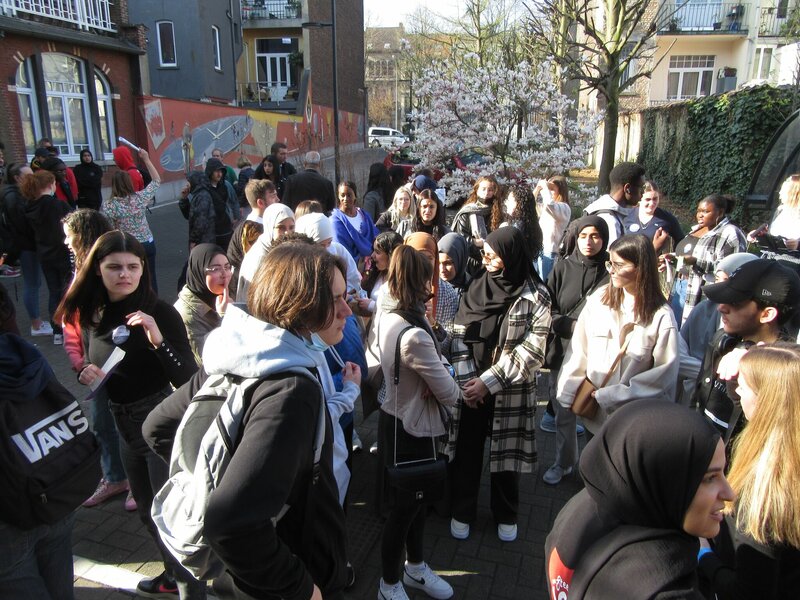
Output of a previous edition of Diversi-Date
- A general introduction: What is Diversi-Date?;
- A short movie on the workshop for teachers;
- A short movie on the method Play and performance;
- A short movie on the method Cooking;
- A short movie on the method Digital storytelling.
The digital stories, created by the pupils and students:
- 'De Held' & 'Een kans voor iedereen' - Theme: helping people, volunteer work, poverty
- 'Verlies' - Theme: mourning, meaning
- 'De nachtmerrie' - Theme: war, terror
- 'Twee werelden komen terug samen' - Theme: missing someone, reunion, internationalisatoin
- 'Ramadan Moubarak' - Theme: religion
- 'God is everywhere' - Theme: student job, pocket money, responsability
- 'Het accident' - Theme: traffic and safety
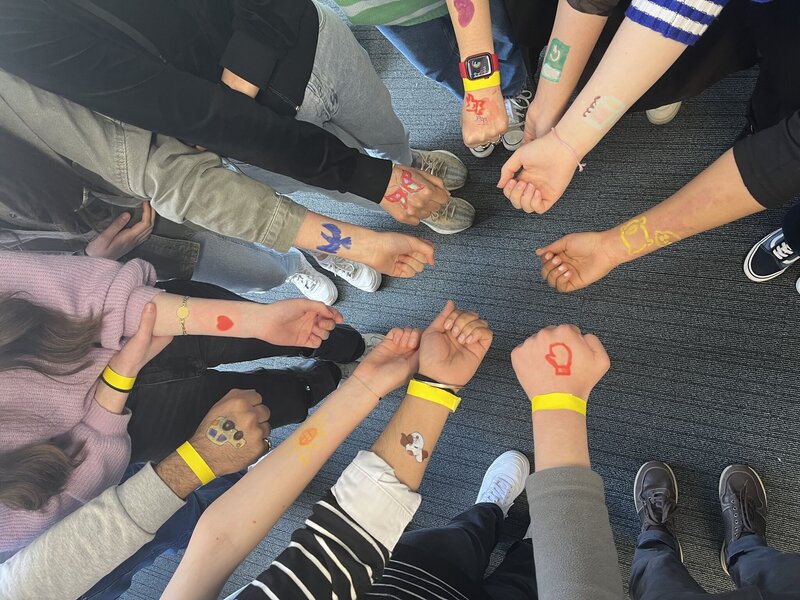
Supported by Erasmus+ and in cooperation with:
-
1
PIMENTO
Pimento challenges young people to start a dialogue about challenging topics, such as identity, resilience, relations... They try to do this by linking active forms of work and play with reflection.
The result: promoting exchange between the young people themselves and breaking down all stereotypes, taboos and borders!
-
2
STORMKOP (only Piazza dell'Arte from 1999 until 2022)
Piazza dell’Arte is a cultural-educational association that organises art workshops for young people aged 14 and over. They are mixing youngsters and artists in co-creational activities for more than 20 years now. The organisation tries to get young people from different cultures and backgrounds to work together.
Important assets are the appeal that Piazza, with its multimedia mix of contemporary art studios, can bring to its young metropolitan and multicultural target group. Piazza wants to focus in particular on inclusion, artistic empowerment and the creation of an interesting space of experimentation for the young. Co-creation is key.
-
3
DE BAGAGEDRAGER
The mission of De Bagagedrager is to bring people into contact with each other's world. The goal is to discuss the issue of each other’s quality of life and making prejudices discussable in accessible, playful and creative ways. The foundation focuses on the optimization of mutual communication, especially in situations where this is made more difficult by taboos, fears or uncertainties. They work from signal to realization, together with the people concerned and make use of games and methods they have developed themselves.
The aim? More openness, recognition, more understanding and more inclusion.
-
4
LIVE YOUR STORY
Live Your Story starts conversations on topical taboos. Using theatre and storytelling, they explore subjects like sexual diversity, racism and consent. They perform plays catered to and performed at high schools. These plays are often followed by workshops, in which they tackle these topics in a hands-on experience. These days are often regarded as empowering by students, providing them with self-esteem, making them feel more comfortable in their school environment, and being encouraged to let go of prejudices. They want to foster empathy and connections in and between students, teachers, and their environments and believe these are essential circumstances to learn and grow as a person.
-
5
JOHANNA NOVAK
Tmi Johanna Novák is a one woman organization. Johanna Novák gives educational consulting and welfare coaching and therapy. The goal in the coaching is increasing the welfare of the people by training their interaction skills with help of applied improvisation method, deep understanding of pedagogics and psychology.
-
6
Educational partners
Saxion, university of applied sciences - Enschede, The Netherlands
Turku University - Turku, Finland
GO! Technisch Atheneum Jette - Brussels, Belgium

